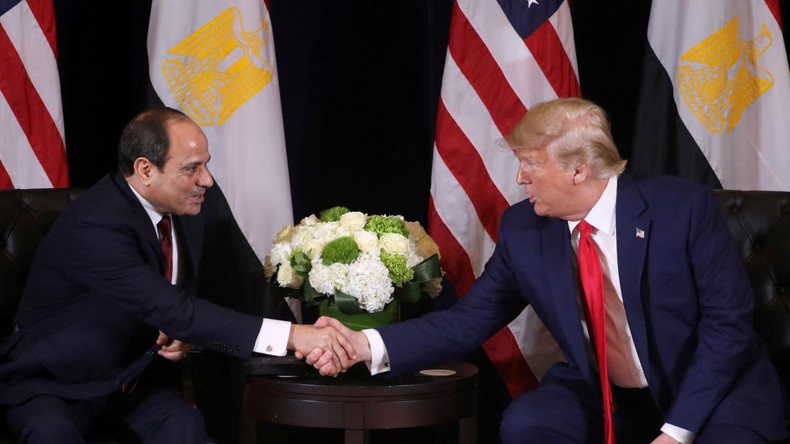The political system of Egypt operates within a semi-presidential system of government. This system was established after 2013 with the rise of President Abdel Fattah el-Sisi. In this system, the President is elected for a six-year term and has the authority to dissolve Parliament through Article 137. The Parliament of Egypt is the oldest legislative chamber in Africa and the Middle East. It is a unicameral body with the power to impeach the President according to Article 161. Following the 2020 elections, a new Senate was established, making the Parliament bicameral.
Presidency
The office of the President of Egypt was established after the Egyptian Revolution of 1952, with Mohammed Naguib being the first to hold the position. Before 2005, the Parliament selected a candidate for the presidency, and the people voted in a referendum to approve or reject the candidate.
Following the Egyptian Revolution of 2011, the first free and fair presidential election in Egypt's history was held in 2012. The candidate of the Muslim Brotherhood, Mohamed Morsi, was declared the winner on June 18, 2012. However, widespread dissatisfaction with the autocratic actions of the Muslim Brotherhood government led to the 2013 Egyptian Revolution, resulting in the removal of President Mohamed Morsi by General Abdel Fattah el-Sisi and the suspension of the 2012 constitution. El-Sisi was subsequently elected as the head of state in the 2014 presidential election and officially sworn in as Egypt's new president on June 8, 2014.
According to Article 133 of Egypt's 2012 constitution, the presidential term is four years, and a candidate can only be re-elected once. The eligibility criteria for a presidential candidate include being born to Egyptian parents, holding only Egyptian citizenship, possessing civil and political rights, and not being married to a non-Egyptian, with a minimum age of 40 Gregorian years.
Article 146 designates the president as the Supreme Commander of the Armed Forces. However, the president must consult the National Defense Council and obtain the approval of the majority of Members of Parliament to declare war or deploy armed forces outside the country's territory.
In April 2019, Egypt's parliament extended the presidential term from four to six years. A constitutional referendum held in Egypt from April 20 to 22, 2019, with overseas voting occurring between April 19 and 21, resulted in approved changes that allowed President Abdel Fattah el-Sisi to remain in power until 2030. Before the constitutional amendments, he would have been ineligible to contest the next elections scheduled for 2022. The changes were supported by 88.83% of voters, with a 44% turnout.
